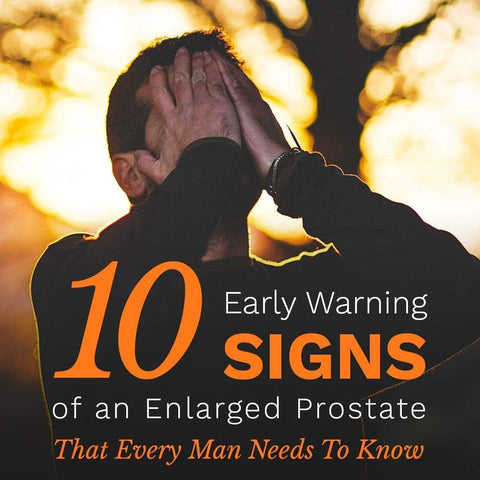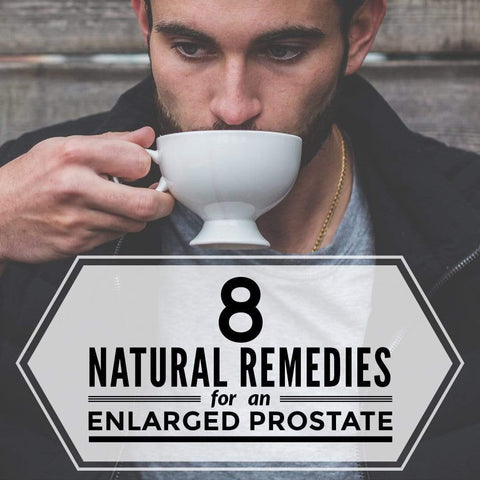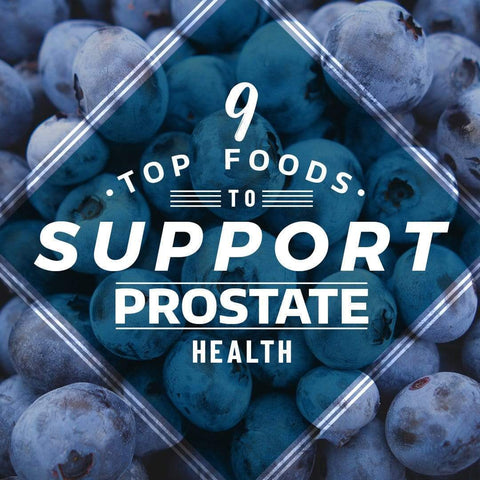
As they grow older, many men notice changes in their lower urinary tract. Urinating and sex can become more difficult, and these geriatric changes are often the inspiration for many jokes.
Funny or not, these changes can be unpleasant and affect the quality of life for older men.
The cause of these changes is an enlarged prostate gland. This gland sits next to the bladder and is responsible for production of semen components.
The main cause of an enlarged prostate, or BPH (Benign Prostatic Hyperplasia), is the overproduction of DHT, an especially powerful form of testosterone that causes prostate cells to multiply too aggressively. Emerging research also shows that excessive estrogen may play a role in this overgrowth of the prostate gland as well.
There are also risk factors for the development of BPH. These are mentioned below.
As you get older, it is useful to know if you have an enlarged prostate, so that you can make lifestyle changes to lessen the discomfort.
Watch out for these early signs of BPH:
1. You experience weak or slow urination.
Because of the pressure that an enlarged prostate can put on the bladder and urethra, the flow of urine can be interrupted, leading to a weak flow of urine or requiring a longer amount of time on the toilet.
Because of the pressure that an enlarged prostate can put on the bladder and urethra, the flow of urine can be interrupted, leading to a weak flow of urine or requiring a longer amount of time on the toilet. This is perhaps the most common and obvious sign of an enlarged prostate, and you’ve probably heard plenty of jokes about the troubles that aging men have when urinating.
So if your urine isn’t exiting normally and your stream is weak, it could be a sign that your prostate cells have excessively multiplied, resulting in an enlarged prostate gland.
2. You are leaking urine.
It can be embarrassing to have wet spots show on your pants in public! Unfortunately, a swollen prostate doesn’t just make it hard to pee. It can also make it hard for urine to stay in the bladder.
Because of the pressure put on the bladder and urethra, the normal ability to hold urine is compromised.
3. You have high PSA on your blood test.

PSA is often measured during routine physicals for aging men. PSA stands for Prostate-specific antigen, which is a protein made in small amounts by a healthy prostate. The purpose of PSA is to break down large proteins in semen to make it more liquefied.
Often used as a marker, PSA can also be high in the case of an enlarged prostate.
Exclusive Bonus! Download the FREE report ‘The Ultimate Prostate Health Cheatsheet’ by clicking here.
4. You have high blood pressure.
Researchers found a “significant” association between high blood pressure and BPH [1], and it appears it is independent of one’s age. So regardless of your age, if you have high blood pressure, you could develop an enlarged prostate.
High blood pressure often means you have bad circulation, so there seems to be a harmful effect on the prostate when your blood is struggling to travel through your body.
5. You’re old.

It might seem unfair, but researchers say, “Nearly all men will develop histological benign prostatic hyperplasia by the age of 80” [3]. Age is certainly a major risk factor for BPH. The natural hormonal changes that come with age—excess DHT and estrogen—set you up for this.
But that doesn’t mean there’s nothing you can do about it. Diet and supplements can profoundly affect the health of your prostate and the degree to which it becomes enlarged.
6. You’re straining when urinating.
Urinating shouldn’t take effort. If you catch yourself groaning at the urinal, it could be a sign that your prostate is clamping off your urethra.
7. You wake up many times in the night.
If you wake up often to urinate in the night, you could have an enlarged prostate. The pressure put on your bladder will produce a sensation that your bladder is full of urine when it really isn’t.
8. You experience sexual dysfunction.
BPH can cause erectile dysfunction and difficult ejaculation [4]. The extreme pressure on the urethra (the tube that carries urine and semen out of the penis) may be to blame for this sexual dysfunction.
9. You eat lots of meat.

Increased meat consumption is associated with a higher risk of enlarged prostate [5]. A possible cause of this could be that meat increases growth factors in the body, causing prostate cells to divide more rapidly. There is also a theory that some animal products contain potent estrogen that could raise the risk of BPH.
10. You are overweight.
Obesity is also a risk factor for BPH, so if you’re fat, you could be close to developing an enlarged prostate [5]. Fat cells generate both estrogen and inflammation, excess amounts of which are generally harmful to the prostate.
Are you concerned about your prostate health?
Would you like an easy way to maintain proper prostate health at any age?
The good news is Nutritionist Evan Burns has just released his FREE prostate health cheatsheet, which reveals everything you need to know from signs and symptoms of an unhealthy prostate to foods and natural remedies for improved prostate health, it’s got you covered.
He even provides answers to the top prostate health questions that most men are too embarrassed to ask their doctors about.






